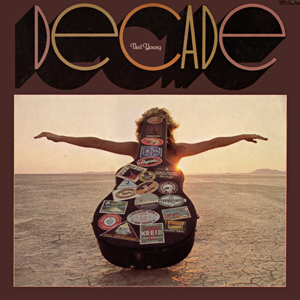
Decade is a compilation album by Canadian–American musician Neil Young, originally released in 1977 as a triple album and later issued on two compact discs. It contains 35 of Young's songs recorded between 1966 and 1976, among them five tracks that had been unreleased up to that point. It peaked at No. 43 on the Billboard Top Pop Albums chart, and was certified platinum by the RIAA in 1986.
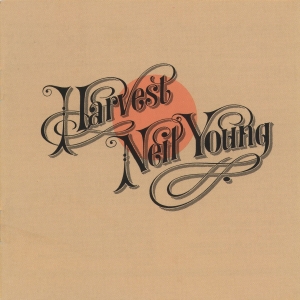
Harvest is the fourth studio album by Canadian-American musician Neil Young, released on February 1, 1972, by Reprise Records, catalogue number MS 2032. It featured the London Symphony Orchestra on two tracks and vocals by guests David Crosby, Graham Nash, Linda Ronstadt, Stephen Stills, and James Taylor. It topped the Billboard 200 album chart for two weeks, and spawned two hit singles, "Old Man", which peaked at No. 31 on the US Billboard Hot 100, and "Heart of Gold", which reached No. 1. It was the best-selling album of 1972 in the United States.

"That'll Be the Day" is a song written by Buddy Holly and Jerry Allison. It was first recorded by Buddy Holly and the Three Tunes in 1956 and was re-recorded in 1957 by Holly and his new band, the Crickets. The 1957 recording achieved widespread success. Holly's producer, Norman Petty, was credited as a co-writer, although he did not contribute to the composition.

Harvest Moon is the 21st studio album by Canadian musician Neil Young, released on November 2, 1992. Many of its backing musicians also appeared on Young's 1972 album Harvest.

After the Gold Rush is the third studio album by the Canadian-American musician Neil Young, released in September 1970 on Reprise Records. It is one of four high-profile solo albums released by the members of folk rock group Crosby, Stills, Nash & Young in the wake of their chart-topping 1970 album Déjà Vu. Young's album consists mainly of country folk music along with several rock tracks, including "Southern Man". The material was inspired by the unproduced Dean Stockwell-Herb Bermann screenplay After the Gold Rush.

Greatest Hits is the eleventh official album release for English musician Elton John, and the first compilation. Released in November 1974, it spans the years 1970 to 1974, compiling ten of John's singles, with one track variation for releases in North America and for Europe and Australia. It topped the album chart in both the United States and the United Kingdom, staying at number one for ten consecutive weeks in the former nation and eleven weeks in the latter. In Canada, it was number one for 13 weeks between 14 December 1974, and 22 March 1975, missing only 28 December 1974, at number two to Jim Croce's Photographs & Memories.
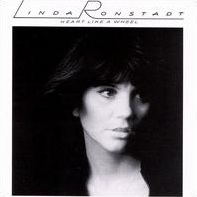
Heart Like a Wheel is the fifth solo studio album by Linda Ronstadt, released in November 1974. It was Ronstadt's last album to be released by Capitol Records. At the time of its recording, Ronstadt had already moved to Asylum Records and released her first album there; due to contractual obligations, though, Heart Like a Wheel was released by Capitol.

"Old Man" is a song written and performed by Canadian rock singer-songwriter and guitarist Neil Young from his 1972 album Harvest. "Old Man" was released as a single on Reprise Records in the spring of 1972, reaching number 4 in Canada, and number 31 on the Billboard Hot 100 singles chart for the week ending June 3.

"Ooo Baby Baby" is a song written by Smokey Robinson and Pete Moore. It was a 1965 hit single by The Miracles for the Tamla (Motown) label.

"The Tracks of My Tears" is a song written by Smokey Robinson, Pete Moore, and Marv Tarplin. It is a multiple award-winning 1965 hit R&B song originally recorded by their group, The Miracles, on Motown's Tamla label. The Miracles' million-selling original version has been inducted into The Grammy Hall of Fame, has been ranked by the Recording Industry Association of America and The National Endowment for the Arts at No. 127 in its list of the "Songs of the Century" – the 365 Greatest Songs of the 20th Century, and has been selected by Rolling Stone as No. 50 on its list of "The 500 Greatest Songs of All Time", among many other awards. In 2021, Rolling Stone ranked the Miracles' original recording of "The Tracks of My Tears" as "The Greatest Motown Song of All Time".
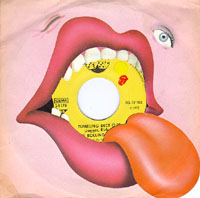
"Tumbling Dice" is a song by the English rock band the Rolling Stones. It was released worldwide as the lead single from the band's 1972 double album Exile on Main St. on 14 April 1972 by Rolling Stones Records. A product of Mick Jagger and Keith Richards' songwriting partnership, the song contains a blues and boogie-woogie-influenced rhythm that scholars and musicians have noted for its unusual tempo and groove. The lyrics are about a gambler who cannot remain faithful to any woman.

"Heat Wave" is a 1963 song written by the Holland–Dozier–Holland songwriting team. It was first made popular by the Motown vocal group Martha and the Vandellas. Released as a 45 rpm single on July 9, 1963, on the Motown subsidiary Gordy label, it hit number one on the Billboard Hot R&B chart—where it stayed for four weeks—and peaking at number 4 on the Billboard Hot 100.

"You're No Good" is a song written by Clint Ballard Jr., first performed by Dee Dee Warwick for Jubilee Records in 1963 with production by Jerry Leiber and Mike Stoller. It has since been covered by many artists, including charting versions by Betty Everett in 1963, The Swinging Blue Jeans in 1964, and Linda Ronstadt in 1974, whose version was a number 1 hit in the United States.
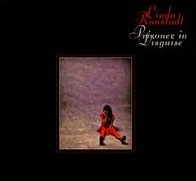
Prisoner In Disguise (1975) is Linda Ronstadt's sixth solo LP release and her second for the label Asylum Records. It followed Ronstadt's multi-platinum breakthrough album, Heart Like a Wheel, which became her first number one album on the US Billboard 200 album chart in early 1975.

Don't Cry Now is the fourth solo studio album by American singer Linda Ronstadt. It was released by Asylum Records on October 1, 1973 and contained ten tracks. While some tracks were new material, many of the songs were cover tunes. The album explored the genres of Country folk, country rock and pop rock. It was Ronstadt's first album recorded on the Asylum label and first to feature producer Peter Asher. Don't Cry Now was given favorable reviews from several music publications and was a commercial success. Along with reaching chart positions in multiple countries, it also certified gold in the United States for selling over 500,000 copies.
"After the Gold Rush" is a song written and performed by Neil Young and is the title song from his 1970 album of the same name. In addition to After the Gold Rush, it also appears on the compilation albums Decade, and Greatest Hits, and on Live Rust.
"By the Time I Get to Phoenix" is a song written by Jimmy Webb. Originally recorded by Johnny Rivers in 1965, it was reinterpreted by American country music singer Glen Campbell on his album of the same name. Released on Capitol Records in 1967, Campbell's version topped RPM's Canada Country Tracks, reached number two on Billboard's Hot Country Singles chart, and won two awards at the 10th Annual Grammys. Broadcast Music, Inc. (BMI) named it the third most performed song from 1940 to 1990. The song was ranked number 20 on BMI's Top 100 Songs of the Century. Frank Sinatra called it "the greatest torch song ever written." It was No. 450 on Rolling Stone magazine's Top 500 Songs of All Time.
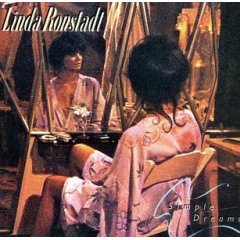
Simple Dreams is the eighth studio album by the American singer Linda Ronstadt, released in 1977 by Asylum Records. It includes several of her best-known songs, including her cover of the Rolling Stones song "Tumbling Dice" and her version of the Roy Orbison song "Blue Bayou", which earned her a Grammy nomination for Record of the Year. The album also contains covers of the Buddy Holly song "It's So Easy!" and the Warren Zevon songs "Poor Poor Pitiful Me" and "Carmelita". The album was the best-selling studio album of her career, and at the time was the second best-selling album by a female artist. It was her first album since Don't Cry Now without long-time musical collaborator Andrew Gold, though it features several of the other Laurel Canyon-based session musicians who appeared on her prior albums, including guitarists Dan Dugmore and Waddy Wachtel, bassist Kenny Edwards, and producer and multi-instrumentalist Peter Asher.

"Lotta Love" is a song written and recorded by Neil Young and released on his 1978 Comes a Time album. "Lotta Love" was also covered by Nicolette Larson in 1978. Larson's version reached No. 8 on the Billboard Hot 100 chart and No. 8 on the Cash Box Top 100 in February 1979. It also hit No. 1 on the Easy Listening chart and was a hit in Canada,, Australia and New Zealand.

"Harvest Moon" is a song written by Canadian and American singer and songwriter Neil Young, released in November 1992 by Reprise Records as the first single from his 19th album, of the same name (1992). The song was both written and produced by Young, reaching No. 36 on the UK Singles Chart.


















